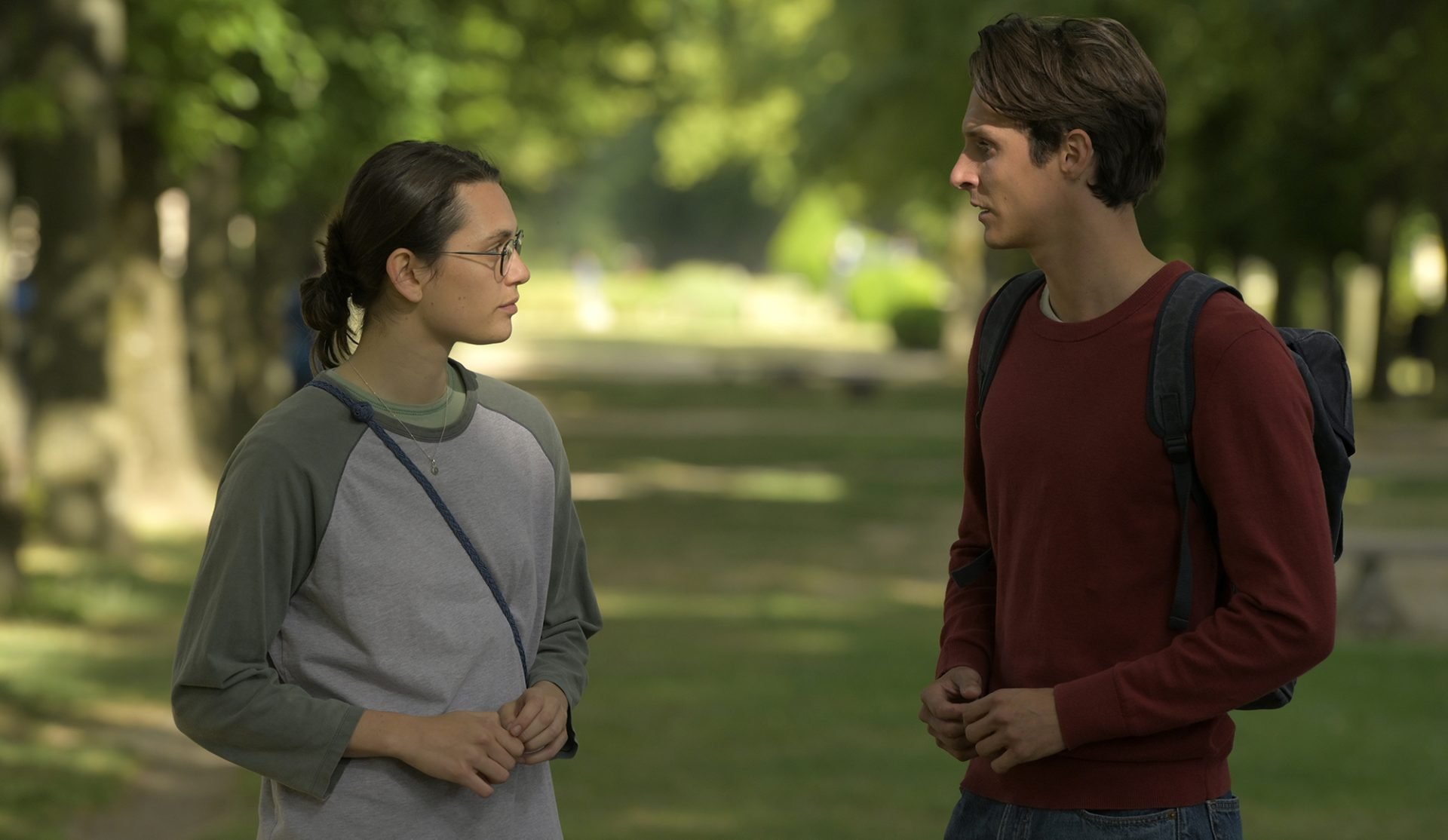Under the guise of a revered story of an eccentric academic genius, writer-director Anna Novion’s “Marguerite’s Theorem” is a mellow ballad on reinventing oneself amidst the remnants of shattered dreams. Presented at the “Special Screening” section of this year’s Cannes Film Festival, “Marguerite’s Theorem” feature Ella Rumpf (from Julia Ducournau’s “Raw”) as a socially-awkward brilliant mathematician, Marguerite Hoffmann, who struggles to cope with her high-profile failure.
The film starts with an immediate likeness to biopic dramas featuring the ‘mad genius’ tropes. You know, the likes of “A Beautiful Game,” “The Imitation Game,” and “The Theory of Everything.”. Rumpf’s Marguerite channels the same idiosyncratic touch of genius here. However, the film does not necessarily contain itself within the scope of that genre. The story of “Marguerite’s Theorem” tries to set itself apart in a particular way. It tries to champion the failures of Marguerite more than glorifying the eventual success.
Marguerite is a top mathematics student at Ecole Normale Superleure, one of France’s topmost universities. She is the protegee of famed professor Laurent Werner (Jean-Pierre Darroussin). When Marguerite’s thesis, her work of three years, gets nullified by a small mistake, she gradually experiences a downward spiral. Her vanity could not handle the mistake, resulting in ill-placed loathing and anger. Her anger gets directed toward the person who pointed out her mistake during the presentation, Oxford-returned Lucas (Julien Frison).
The dichotomy between Marguerite and Lucas can immediately be seen. Lucas is much freer, as opposed to Marguerite, who is quite high-strung. A typical pair for a rom-com. Director Novion does not shy away from that either. For love is one important metric that Marguerite desperately needed. The mistake in her thesis leads her to leave Werner’s mentorship and the institute. It is when she leaves everything and disconnects from her academic life, she starts to accommodate different perspectives.

Odd jobs, new accommodation, and a new flatmate. All these follow suit. Marguerite radically changes her life. Novion’s script consists of multiple plot points for multiple separate stories. A charismatic flatmate (Sonia Bonny) shows Marguerite how fun life could be outside of the life of constant pursuit of immortality. Marguerite finds a new but illegal outlet for her mathematical prowess in the form of backdoor mahjong gambling. And then, of course, she reconnects with Lucas, the man who shamed her, much like a rom-com reunion.
All these events could be a story in itself. As a result, “Marguerite’s Theorem” carries the risk of becoming cumbersome. Much like the solution she tries to find for her eponymous theorem. However, Novion does make it comprehensively seamless. It is due to the fact that none of these aforementioned plot points overstay their welcome. The story, not necessarily novel, remains straightforward in its goal of painting a picture of reinvention by taking a step back.
Ella Rumpf does well to not become a caricature in her portrayal of autism-inspired Marguerite. The Internet has not been kind to such portrayals recently (one can ask poor Freddie Highmore at that). In hindsight, Novion might have done better to break the usual trope of scientific genius being socially awkward. I mean, Marguerite could have been like Will Hunting without losing any of the film’s essence. This was a story about finding peace amidst the hollowness of failures. It is a universal feeling. One does not need another sympathetic layer.
Jacques Girault’s camera and Anne Souriau’s editing are palatable, nothing flashy. Obviously, that’s not necessarily a bad thing. There are a few deadpan humor sequences created with the help of quick cuts and stoic cinematography. Marguerite’s one-night stand intercourse scene is one such example. “Marguerite’s Theorem” is a bit helter-skelter in that way. You are not exactly sure where Novion wants to go, except for the surety of Marguerite eventually finding her goal.
“Marguerite’s Theorem” is an odd film in that way. It is not exactly a novel film. But there are some unexpected moments interspersed throughout the film. It is primarily the earnestness of the story where Novion wanted to show that success is just a matter of perspective that would perhaps stay with you. The film might not be among the heavyweights of the Cannes lineup, but it is not entirely forgettable.


